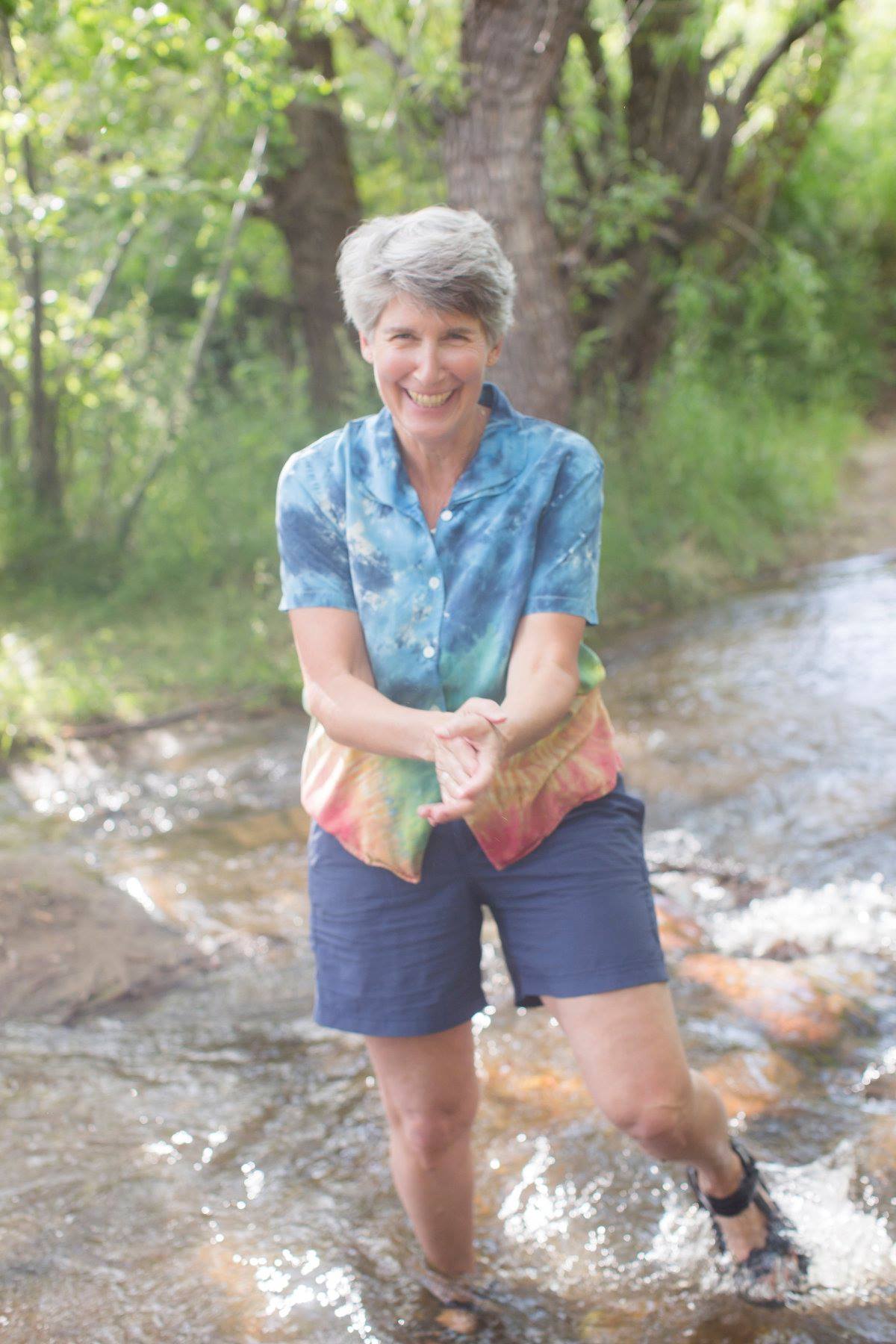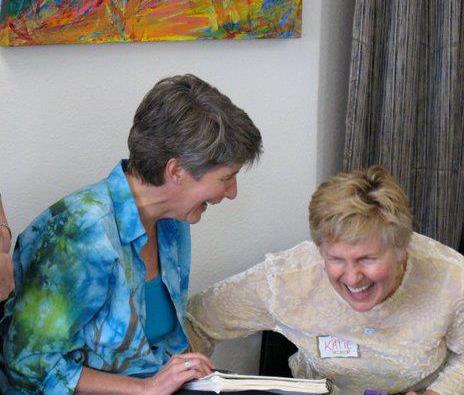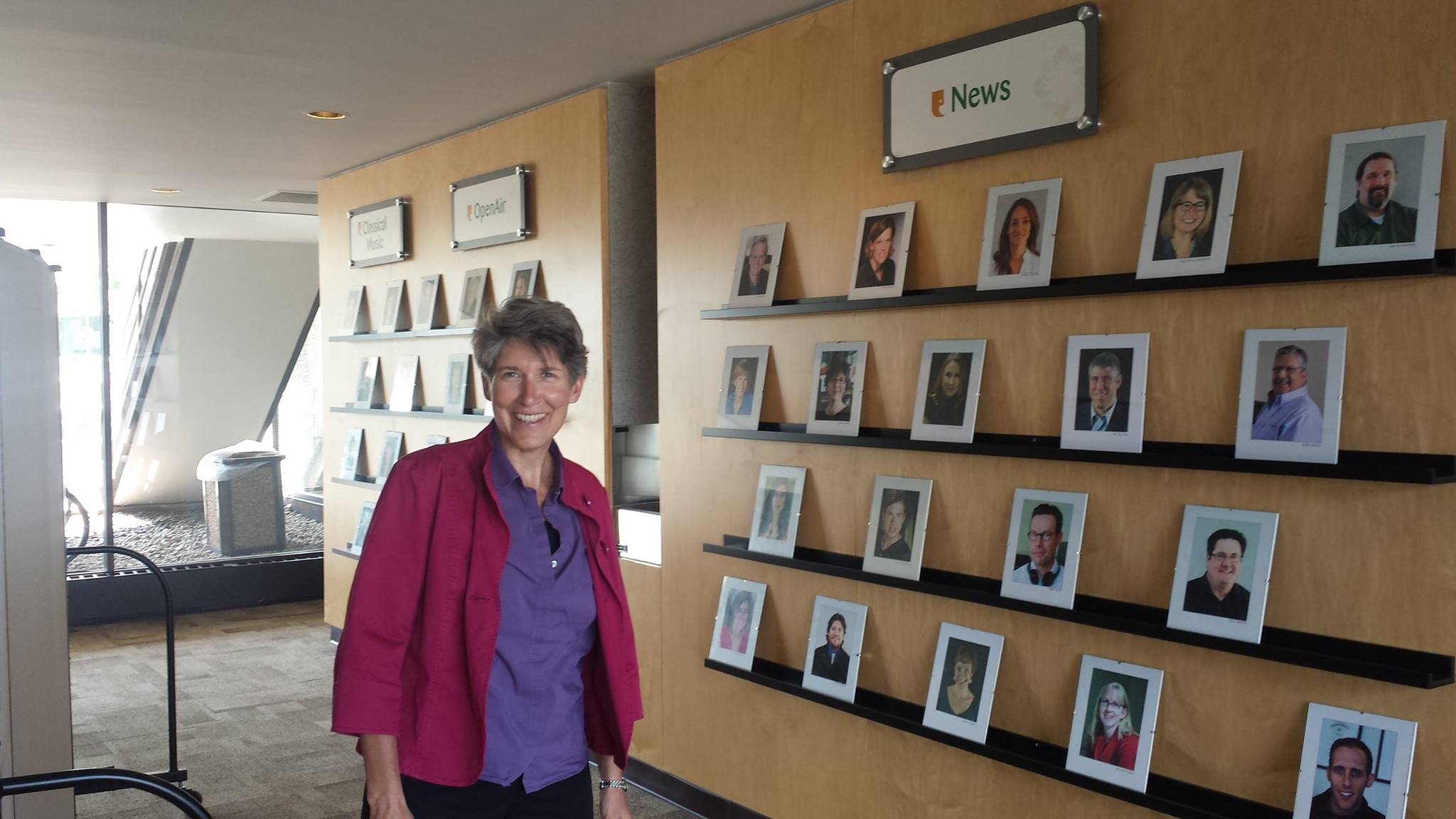Based in Boulder, psychologist Julie Colwell’s body of work extends over 30 years and brings together science, wisdom and applied work with thousands of people.
Kathlyn (Katie) Hendricks, PhD, BC-DMT, and Julia (Julie) Colwell, PhD, are pioneers in the field of human consciousness, conscious leadership and human potential. Nancy Kepner, co-founder of Crafted Leadership, LLC, sat down with Katie and Julie to get their perspective on a range of issues. Crafted Leadership’s mission is to spread conscious leadership throughout the global workplace, using Julie and Katie’s work as the foundation.
Nancy: Julie, what would you say about your own work?
Julie: I’m fascinated by what real power is. These days, I’m calling it Evolutionary Power. There is the old power, power over/under model of hierarchy that we are all very familiar with. Every mammal, every human understands hierarchy. Down to our DNA, we know hierarchy.
Now it’s time for us to move beyond hierarchy because hierarchy keeps us in Reactive Brain. One leads to another. Reactive Brain leads to hierarchy, hierarchy leads to poorer individual functioning.
But there’s this other possibility which is beyond all of that. Once we get out of our reactivity, we are in this other place where collaboration is possible, our full creative potential can be expressed. There’s where my fascination is. What does real power look like? This is the next phase of humanity as far as I’m concerned, where every single one of us can live from our full potential, where we know how to do it. We just need to understand the situation that supports that. It’s not that complicated. I’m very interested in that.

Relationship Skills workbook is a DIY guide to thriving relationships of all kinds.
Part of my life’s purpose is to support the shift beyond hierarchy, into co-creativity. People can be happy. We don’t have to be addicted, and we don’t have to be neurotic.
At different times I’ve said I’m a friendly elevator operator: I meet people where they are. Sometimes we are way down in the basement and we hang out there until we are ready to be in a different place.
Instead of seeing one state of consciousness as better than or more positive than another, it’s about mastering all states and letting shame be as divine as appreciation or love.

Julie Colwell is a collaborator at heart.
It’s about understanding that for humans, a big problem is that we are threatened animals who have language. We create these long stories that we get so caught in, often from our most negative states. Then we believe ourselves, that whatever we’re thinking is true. That’s a big problem, because our minds change all the time, according to whatever level of consciousness we’re inhabiting.
My investment is building a bridge of awareness about those states of consciousness so people understand they can move all around, [from one state to another.] Each state is as glorious as the next, though it sure can be more fun to live in an expanded state than in all of this contraction that we mostly walk around in.
Katie: I would add to that your explanation takes place within a community context where you’re practicing collaboration, you’re practicing being with people while they find their way to loving and appreciating themselves.
That’s part of moving from power over, in a way that models and infuses the possibility for the community. It’s what we used to call holding the space but it’s much more dynamic than that. You’re not trying to do this as a hero and pulling everybody along, you are creating a context of co-creation. Which is, in itself, a demonstration of what you are talking about.
Julie: Yes.
Katie: And you are willing to be with all of the dance of that, which is an evolutionary dance. Not like, “Here, do this and that will happen.” You’re really pioneering.
You’re in the unknown with joy.
Julie: Yes, and we are in the marketplace. It isn’t on the mountain top, even though it’s nice on the mountain top. The grist for the mill is everydayness. Can we do it now? How about this minute? How about when we are tired?

Katie: How about when there is something spilled all over the floor?
Julie: Like when an open white can of paint was heading towards me — how about now? The practice and the embodiment over time of these practices — that is the fun part, to watch how this unfolds.
Katie: I think one thing we both share that is really important here is the initial suspicion for both of our approaches.
#1. It couldn’t possibly be that simple. “You mean, all I need to do is … you’re kidding; you can’t be happy all of the time.” The resistance to seeing the possibility.
#2. That [the principles we teach] are so accessible.
Julie: It can’t be that easy. The third one is, “this must be a cult.”
Katie: Yes! I want to share with you what I say to people when they say, “Oh, are you in a cult?” That happens because people are having so much fun and they come back and they are so different. I say the main difference between us and a cult is that it’s very difficult to get IN (like my advanced class, my Leadership and Transformation program) and it’s very easy to get OUT.
Julie: Oh, that’s great. What a great answer. I love that.
—
Other blogs from this interview touch on fear, courage, emotions in the workplace, flags, their bodies of work, and the present world. Read the next installment, Part 4: Fear.

